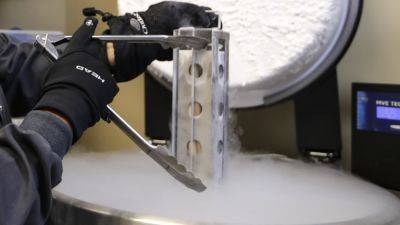Major Embryo Shipping Company Halts Business in Alabama
Cryoport, a major embryo shipping company, said on Friday that it was “pausing” its business in Alabama as it evaluated the state’s Supreme Court decision that declared frozen embryos created through in vitro fertilization to be children.
“Until the company has further clarity on the decision and what it means for Cryoport, clinics and intended parents, it is pausing all activity in Alabama until further notice,” read an email received by an Alabama fertility clinic and shared with The New York Times.
The email said that Cryoport would “not be able to assist” with a scheduled shipment, and instead would offer a refund.
The Alabama court’s ruling has already significantly limited fertility treatment for patients in that state. Three clinics have paused care as they evaluate what the ruling means for their patients and their own legal liability. The case involved several couples whose frozen embryos were accidentally destroyed at a clinic in Mobile. It found that clinics could be held liable for wrongful death claims, bringing new gravity to accidents that are not uncommon in fertility treatment.
Cryoport’s decision will make it more difficult for current I.V.F. patients to move embryos out of state to continue treatments.
Embryo shipping is common in modern fertility treatment, as patients sometimes move and need to switch clinics or move embryos they do not plan to use soon to a long-term storage facility.







